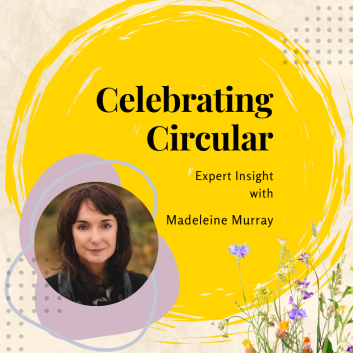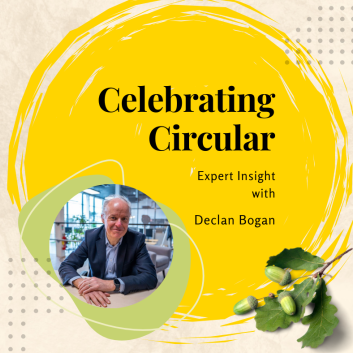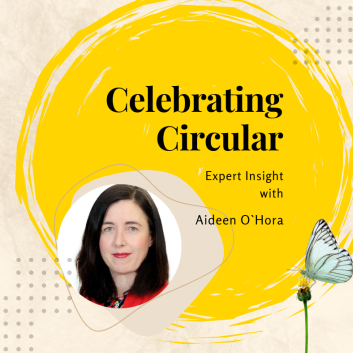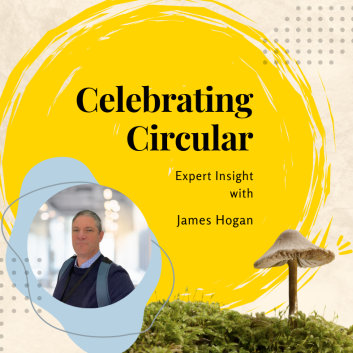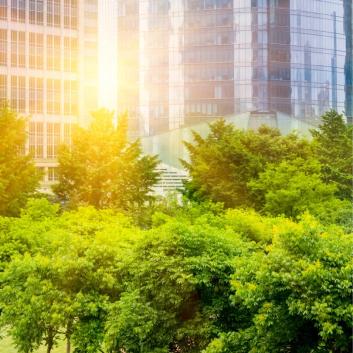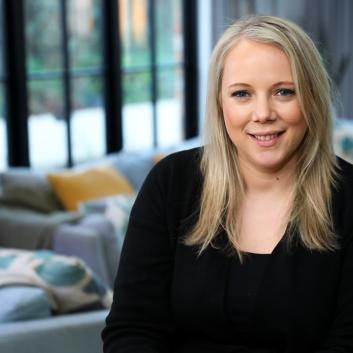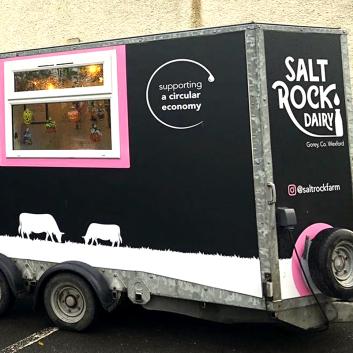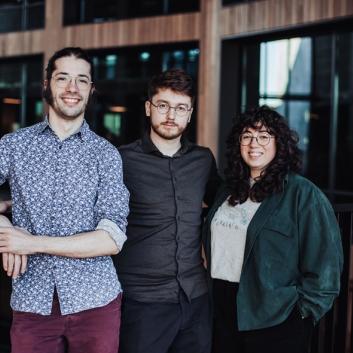The Upcycle Movement – design adventure
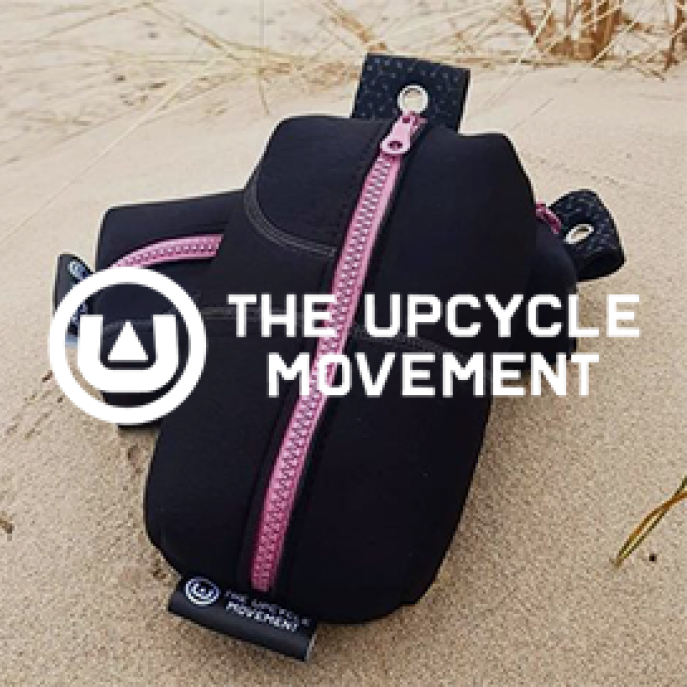
The fashion industry is considered to be in the top 3 major sectors damaging our world. But besides fast fashion, there are areas where we might overlook harmful elements. Outdoor sports lovers wouldn’t harm nature deliberately. But using the equipment, such as wetsuits, made out of non-biodegradable materials will still endanger our environment after they cannot be used any longer.
Irish designer and entrepreneur, Lynn Haughton, founder of multi-award winner The Upcycle Movement, felt there has to be something she could change for the better and combat this wasteful linear system of ‘take-make-dispose’.
Stretching imagination
It all started when I got a bag as a gift from my brother in 2005, which was made from Tsunami relief canvas rescue tents. The women who had made the bags had lost everything at that time and had been sheltering in the tents. But when it was time for them to move on, they cleverly turned them into bags to sell and make money to help them on their next step to rebuild their lives.
It made me realise how much sense that made on so many levels – socially, economically and environmentally. I couldn’t help but think of all the missed opportunities we have literally ‘thrown away’, treating precious materials as waste instead of repurposing them.
It initially started as a passion project because I just love upcycling as a craft. The process of reimagining something and turning it into something brand new never fails to fascinate me.
I sought out opportunities from that and set up The Upcycle Movement to highlight these challenges and inspire creative thinking towards a more sustainable, circular economy.

First, I focused on textiles because I had learnt how much the textile and fashion industry contributes to carbon emissions and climate change which horrified me. I’ve always loved to sew, so I felt it was something I could have a go at and try to design new things from retired textiles to keep them in circulation.
Creating a product to solve more than one problem
Usually, designers have a product they want to make and a problem they want to solve with it, and so they source the materials to suit the product and solution. I work the other way around.
I start with the material – which is the problem – so my design process revolves around the waste material itself, its properties and what else it can do after its original purpose has come to an end.
Then I design products and solutions from there, getting inspired by the material itself. Most recently, I began to specialise in upcycling wetsuits.
When I realised how harmful neoprene is for the environment since there is no other option but to landfill them here in Ireland, I started to look for a solution.
It is difficult for surf schools and water sports centres what to do with old wetsuits. Being a watersports lover myself, I set my focus on challenging that issue.
Wetsuits are made of neoprene which is a durable, stretchy and protective material – so its properties are ideal for products like laptop cases, protective bags and robust travel accessories for example.
It is designed to have outstanding resistance which makes it very useful in many ways but also problematic in terms of disposal – as a composite material cannot be recycled and do not biodegrade.

The water sports and adventure industry are a big target market for us as well as being the suppliers of the material. So we design products together with them - to suit gaps they may have identified or products they’d prefer to be made from upcycled wetsuits rather than new neoprene.
To minimise waste, a large part of our process is to assess each wetsuit individually and lay our patterns out on them like a big puzzle. This way, we can ensure that we are getting the most value and material out of each wetsuit. We also collect any offcuts and damaged parts of wetsuits which we are currently working on a solution to repurpose as well.
Caring customers
Our customers buy from us mainly because they believe in our mission and their values align with ours. We are transparent, vocal and genuine about why we do what we do – and what we do. Customers also play a big role in terms of designing products with us. We have some new products in the pipeline that have been designed with our partners who identified a specific need or product gap.
A repair and return service is also available, so people are buying for life when they buy from us.
We will repair where repair is possible, and when a customer is finished with our product, or it comes to the end of its life, we take it back and use that material again. The customer gets a percentage off their next purchase from us and that means the material is in a continuous loop and kept out of the landfill.
We donate 10% to Seal Rescue Ireland, and people are happy to know they are supporting them with their purchase too.
Building on values makes you stronger
There is definitely a lot to deal with on a daily basis, and no two days are ever the same. I do love the variety of it though!
Sometimes I feel like the effort is getting nowhere – but trying and getting nowhere is better than not trying at all. In doing so you learn, you grow, you push yourself, and that does make a difference so long as you take those new strengths with you and keep going.
It’s natural to experience the highest highs and lowest lows, but as long as you can remember why you are doing what you are doing and stay true to your values, it makes sticking through the tough times navigable.
Once I got a piece of advice: Imagine the worst-case scenario if the business was to fail. Would you be able to deal with that loss? If you imagine the worst and it cripples you with anxiety and fear, and you don’t think you could cope – then don’t do it! If you could feel that you have what it takes to manage this situation then it makes taking the risk a lot easier because you know even if it comes to the absolute worst – you’ll survive and get yourself up.

In 2014/2015, I was dealt a few curveballs in a series of tragic events in my personal life. It was a challenging time, but in feeling the low and the loss – I also lost my sense of fear. That, in turn, gave me a sort of freedom I’d never felt before.
I realised I was living my worst-case scenario and still standing. The only limiting factor for me at that stage was myself and whether I chose to pick myself up and go again or not. So I did. And I did so with more sense of purpose than before.
Generating positive impact is the driving factor for me and the result I’m after. I don’t think I’ll ever feel content enough to say ‘I’ve made it’, it’s not about that: the world is in crisis, and there’s so much to be done!
One of the most important assets of a startup is the Founder
I love to listen to different podcasts about the journey’s other entrepreneurs have had. My main taking from it is that most people learn as they go, and resilience is key.
One sentence I heard has stuck with me ever since: “Nothing works if you don’t”. If you burn out your business wouldn’t survive.
Being an entrepreneur is a lifestyle and a rollercoaster of a lifestyle at that!
I’m extremely grateful to have a group of female entrepreneur friends whom I met at DCU High Fliers Programme, and they play a huge role in keeping me going! We share our highs and lows and help keep each other going through them because we can all relate to each other, even though we all have very different businesses.
It is crucial to have a supportive and encouraging network around you – especially on the days that things may not go as planned, and it all just feels too much.
For me, there is no real separation of work/life as they are so interconnected. It never feels like ‘work’ to me, and I like that about it. On the other hand, it is so easy to over-do it or lose track of time because you’re so engrossed in it, but self-care is crucial and taking time to yourself is vital.
At the start, I said yes to every opportunity that came my way, but it meant my energy was spread and I got off track. If I could go back, I would have told myself to say no more often, but now I am more selective and focused.
That advice of self-care stuck with me and is something I remind myself of frequently because it’s essential to listen to your body, take time just for you and to remind yourself you can only do what you can do - and that is enough.
One of the benefits of working for yourself is that you can take a break when you need it. If I am too tired and getting nowhere, I’ll stop and remind myself: that is ok. I’ll take a nap, do some yoga, go to the beach or get out in nature. Then revisit the situation when I am refreshed and able to deal with it with clarity.
Growing impact, scaling business
To make a more significant impact, I do need to plan for scaling up. As a startup, it’s not easy to take on employees from the get-go so it does mean you juggle a lot yourself at the start.
It is at the point now, where I am looking to expand into a team and get a bigger space which I am really excited about and will be a major milestone! I would love to share our vision with others and grow The Upcycle Movement by spreading the idea of “It's only waste if we waste its potential”.
There are new products to launch, more products to design, other materials to rescue and we are also working on an innovative solution to use even the smallest pieces of offcuts from the wetsuits.
Our latest release is the NEO collection:
Bags and accessories made from upcycled wetsuits designed for everyday adventures. All handmade with respect for the environment and a passion for a more sustainable world.








